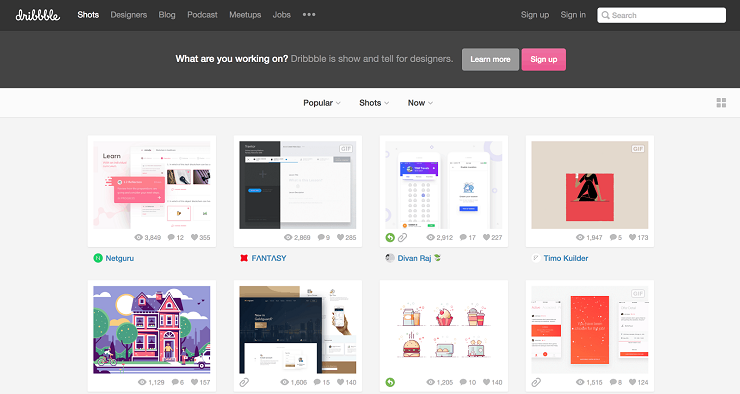As an entrepreneur, it can be tempting to try and be a jack-of-all-trades to keep your business alive. When you’re first getting started, spending money on outside help can feel like you are throwing cash in the toilet. But doing so can actually hinder your momentum and stunt your growth.
In this post, we’ll show you exactly the right time to start outsourcing your business tasks, and how nailing the transition can multiply your sales and profits faster than you ever could on your own.
Busting an Entrepreneurial Myth
If you looked up entrepreneur in the dictionary, what picture would expect to see next to the definition? In my mind, I see someone with a pen in their mouth, a phone tucked next to their ear, one hand on the keyboard, the other closing a deal, and both feet on the move, perhaps even on a treadmill desk. I also imagine something similar located next to multitasker and jack-of-all-trades, which are often thought of as synonyms for entrepreneur.
Entrepreneurs are known for doing it all. Most operate with the attitude of, “If I can do it myself, I should do it myself.” This attitude is good; it’s that spirit of independence that propels entrepreneurs forward and helps them succeed.
This mindset of self-empowerment and resilience is what sets apart a successful entrepreneur from a typical employee. But carry that mindset too far, and it can be crippling, and just plain counterproductive.
Read or listen to any entrepreneurial magazine or podcast, and you’ll hear it said that running your own business is hard, demanding, tiring, and time-consuming. This is true, and recognizing this is one thing, but operating with the notion that this must be the status quo is another. Here’s the difference:
Myth: If being an entrepreneur isn’t always hard, you’re not doing it right.
Truth: Running your own business can be easier, if you choose to help yourself out.
How do you help yourself out? Well, one way is to quit multitasking, as it’s been proven that doing so can inhibit your productivity and damage your brain. It also makes you into a bottleneck for any number of processes. Especially when you’re running an ecommerce business, there are tons of skillsets required that you are probably not that great at by yourself—shipping logistics, customer service, coding, to name a few. Oh and did I mention it’s easier??
To bust out of this “I can do it all” myth, you’re going to need to outsource tasks and processes of your business. Do it right, and this will free up your time and energy, while helping you grow your sales and profits.
When It’s Time to Bring in Help
Outsourcing your business involves giving projects or parts of your business to an outside individual or company that specializes in that specific work. Historically, the term outsource has been used in the context of logistics and fulfillment, but today, businesses outsource anything from accounting to content marketing.
Entrepreneurs—especially scrappy solopreneurs and bootstrappers—too often view outsourcing as a luxury only afforded to big businesses and corporations. As technology and today’s gig economy continue to grow, that’s no longer true. In fact, a recent Elance survey (now Upwork) found that 78% of small businesses say that freelancers give them the upper hand against the competition.
Wondering when you should outsource? Here are some signs it may be time for you to look into external help:
- You’re stressed by all the different tasks required by your business
- You feel like the days are getting shorter and shorter
- You feel like you’re always working but barely moving forward
- You want more time and energy
- You know there are things you want for your business, but you’re not sure how to do them
If you’re struggling to successfully manage your business, and rarely find time to spend on growth efforts, you may want to consider outsourcing a few projects or tasks.
There’s a difference between a business in “maintenance” mode and in “growth” mode, and outsourcing your business can be the bridge that gets you to the latter.
Want to know the exact tools we use at Foundr to cut costs and automate tasks?
The Pros and Cons of Outsourcing Your Business Tasks
So, why outsource? We can boil it down to two main benefits: staying focused and staying competitive.
Think about why you became an entrepreneur in the first place. In this moment, the reason itself doesn’t matter as much as how far you’ve gotten away from staying true to that reason. Hint: If your stress level and ever-growing list of tasks have pushed you to the edge of burnout or resentment, you’re too far.
Outsourcing your business can help you return to the heart of your why you got into business and stay focused on growth and innovation. Outsourcing lightens your workload and allows you to get more done while working less. It’s a surefire way to get help while avoiding the expense and energy of bringing on full-time employees, and still provides you with a sense of camaraderie and teamwork.
Second, outsourcing keeps your business competitive. Technology and trends are ever-changing in today’s business world, and small firms have to stay competitive and relevant to succeed. Are there new things that you don’t have the bandwidth to learn but know will help your business? Outsourcing can help you keep costs low and expertise high.
Now for the downsides. While outsourcing your business can be the key to growth, it’s still best to approach it with an open and educated mind.
Outsourcing can be expensive, depending on the size of your project and level of expertise required. The sourcing process can take a toll and require lots of time on the front end. And once you find someone, onboarding, extending trust, and establishing a communication pattern can also be time-consuming and difficult.
Safe And Smart Outsourcing for Your Business
Think you’re ready to outsource? Follow our guide below to evaluate your business’s top needs and then find and work with qualified contractors.
1. Evaluate Your Business—and What You HATE Doing
Start by taking stock of your business as a whole. Entrepreneurs initially have to fill every role from administrative assistant to CEO, but they shouldn’t have to do all those duties for long.
List the tasks you don’t like to do, don’t have time to do, and don’t have the skillset to do. Don’t hold back. It’s perfectly okay to admit that you don’t enjoy the financial or creative aspects of your business. We all have different strengths.
After listing your business tasks, projects, and processes, “rate” them based on how much time you spend on each and how much it would cost to have someone else do them. For example, data entry may cost $15/hour whereas website design may cost $50/hour. (Rates vary a ton, so use your best judgement or do a little research.)
Next, take a look at your time and money expenditures. Where is most of your time going, and what are those tasks worth? For my business, I find myself spending the majority of my time on client management, email communications, social media marketing, financial analysis, and event planning. Where I stand to benefit most from outsourcing would be hiring contractors for my email and social media marketing, as well as financial analysis and accounting. Both of these can be pretty easily outsourced without hurting my budget or harming my personal relationships with clients.
Here’s another truth: Time is money, and money is time. If you’re spending hours on tasks you don’t have to do or you’re not skilled at, you’re essentially spending money! If you’re only noticing the money you’re saving and not the time you’re losing, your naivety is costing you. Your time is the only resource you cannot duplicate or outsource.
Lastly, do a deep soul search. How do you handle relinquishing control? How well do you work with others? Many entrepreneurs choose their career paths because they like to be in control, in charge, and alone.
News flash: If you want to grow your business beyond a rickety solo shop with modest profits, you can’t always be in control, in charge, and alone. You’ll slow your momentum and cut off your potential at the knees.
2. Decide What to Outsource. Hint: It’s Not Everything
Now return to your list. While it’s tempting to outsource your business tasks that you don’t particularly enjoy, don’t get rid of them just yet. Some tasks and processes should remain in house, as they give your small business its unique flair. An example of this could be your customer service. It makes sense for a large-scale corporation to seek help in that arena, but doing so could cause your business to lose its personal touch.
Instead, focus on outsourcing your business tasks that require highly-skilled expertise, repetitive action, or specialized knowledge.
Is there anything on your list that is “valued” less (the $15/hour stuff) that you spend a lot of your time on? Cross-reference those activities with the characteristics above. You’ll likely come up with tasks such as data entry, accounting and financial analysis, or web design.
Other commonly outsourced tasks for businesses include:
- Fulfillment and inventory
- Virtual assistance for basic administrative tasks
- Content or social media marketing
- Graphic design
- Copywriting
- Webinar or online course creation
Once you decide what task or specialty you’d like to outsource, establish what specifically needs to be done. For example, if you’re looking for accounting help, you can’t simply approach a contractor and say, “Here are my Q2 numbers!” Independent contractors may be independent, but they can’t read your mind.
Package the project with clear instructions and deliverables. Take this real example of a job from Upwork:
“We are a small online e-commerce retailer with multiple sales channels on Amazon, eBay and our own independent website looking for a knowledgeable accounting professional who can help us set up our accounting system.
We currently have all our comprehensive financial records in Excel with basic reports such as income statements and balance sheets. As our business grows, it’s becoming more important to have a full accounting system set up through software like Quickbooks or Xero that can be kept up to date. We need somebody who can take our current records and get them set up in the new system.
Along with setting up the new current system, we will need an outline of the daily, weekly, and monthly bookkeeping tasks that are needed in order to keep the books up to date.”
Packaging a job like this will will not only help you get clear on what you need, but it will also set firm expectations for whomever you interview and hire, once you get to that step. In fact, experienced contractors—the ones you really want to snag—generally avoid vague or undetailed jobs. So packaging your jobs in a clear and concise way will help you attract the very best for your gig.
Want to know the exact tools we use at Foundr to cut costs and automate tasks?
3. Research and Hire Help Before You Crash
The internet has made it easier than ever to become an independent contractor, meaning your life as a business owner is also simplified. But while the research and vetting process has become pretty straightforward, the selection process is something that should never be automated. (Or outsourced—if you perform one task on your own, this should be it!)
Because this industry has a low barrier of entry, many people slip through the cracks as qualified contractors. To ensure you’re talking to the right people, ask for referrals within your network. Talk to other business owners or contractors and see if they’d recommend anyone for the job.
In the absence of (or in addition to) good recommendations, you can also use online job websites. Services such as Upwork, CloudPeeps, Fiverr, Guru, ProBlogger, and PeoplePerHour serve as reliable intermediaries for contractors and business owners and provide ways for each to screen the other.
If you’re not satisfied with job board websites, there are other ways to find talented contractors online. If you’re looking for help with copywriting or content marketing, head to your favorite publications and check out the bylines on the top articles. These contributing writers are often freelancers and provide their personal information so to expand their network. If you’re seeking a certain type of design, visit Behance or Dribbble, where freelance designers share their portfolios for exposure and feedback.
So, you’ve found a few contractors that are qualified on paper. Before moving forward, don’t skip the interview phase. Hold an initial conversation, preferably over the phone or on Skype, to learn more about each person and to have an open and clear conversation about expectations. While their qualifications and expertise are important, their personality, communication skills, and trustworthiness will dictate how well you work together. There are plenty of skilled contractors out there; a real-time conversation will help you determine which one is best for your business.
To finalize the hiring process, some business owners opt to send a test project to each applicant, such as a short blog post or sample design piece. You may have to pay a small fee (as most contractors don’t work for free), but this is a great way to see their quality of work, communication skills, ability to ask clarifying questions, and capacity to meet deadlines, all from the perspective of your business’s specific needs.
4. Seal the Deal!
You’ve hired a contractor. Now you can breathe!
Well, not quite. The hard work isn’t over yet. Before handing over projects, hold an initial call or Skype session where you can review the job, talk schedule, and hammer out a solid contract. Experienced contractors will probably have their own contract (which you should review before signing, duh), or you could talk to your lawyer about drawing one up. Either way, it’s best to protect yourself and your business through a legal document.
Signing a contract should get the ball rolling towards a conversation about expectations and deliverables. Never expect a contractor to know what you’re thinking, even when they have plenty of experience under their belt. Be very clear about your goals and don’t hesitate to share ideas; that’ll give the contractor a good place to start. The best outsourced work is a combination of a business owner’s vision and a contractor’s expertise.
Another important component of the outsourcing relationship is the approval or check-in process. A professional contractor should never disappear, only to resurface months later with completed work. At the start of the working relationship, set benchmarks and times when you and the contractor can touch base and review the progress of his or her work. This will keep you both on the same page and on schedule.
Lastly, expect a learning curve for both you and the contractor. Be patient as he or she adapts to your business and working process, and don’t be surprised if you struggle with relinquishing control or extending trust. As both of you adapt, you’ll find that you have more freedom to work on more important tasks. It will become easier over time!
Remember: If you micromanage or redo the contractor’s work, the whole point of hiring help is lost. In fact, you’ll probably be doing more work than you were before you outsourced.
Want to know the exact tools we use at Foundr to cut costs and automate tasks?
Conclusion
Outsourcing your business is not as much about logistics as it is about mindset. Many entrepreneurs pride themselves on being jacks-of-all-trades and carrying their entire businesses on their shoulders.
Starting a business in this way is admirable, but continuing to operate and expecting to scale alone is reckless and actually pretty impossible. Removing yourself from low-level operations and sheer busy work is the best investment you can make in your business’s long term success and growth.
Outsourcing helps keep your enthusiasm and passion for your business strong, as you get to spend time on activities that got you excited about starting your business in the first place.
Any success or failure stories from your own adventures in outsourcing? What process did you follow, and what would you recommend to fellow entrepreneurs? Tell us in the comments below!






















